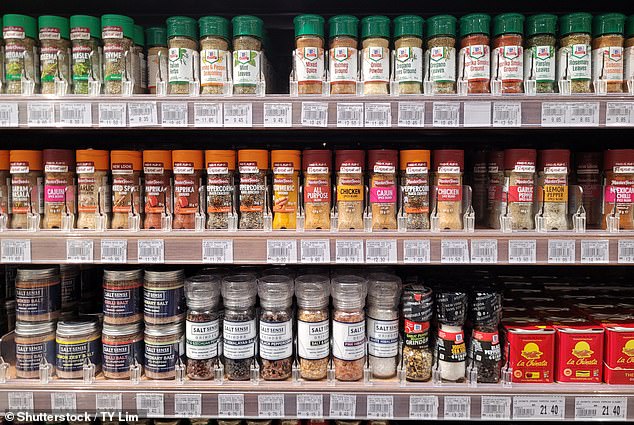[ad_1]
Australians may soon be paying significantly more for black pepper as a global shortage threatens supermarket stocks.
Industry experts are raising the alarm over the declining supplies, with poor weather conditions in key producing countries blamed for the crunch.
A disappointing monsoon season across parts of Asia, where the bulk of the world’s pepper is grown, has left crops underperforming, triggering concerns about future availability and price spikes.
However, FEMAIL understands Aussie Coles and Woolworths currently have enough supply and no immediate concerns have been identified.
‘Currently peppercorn prices are high due to lower crop yields in most tropical countries where pepper is grown,’ Iah Hemphill, Managing Director of Australian spice company Herbie’s Spices told FEMAIL.
‘The flowers on pepper vines are naturally pollinated during the monsoon as water runs down the hermaphrodite flowers and fertilises them.
‘Poor monsoons due to climate change mean less pollination and thus lower quantities of berries on each spike. Like all agricultural commodities, lower yields lead to higher prices.’
Mr Hemphill explained that prices are expected to remain high until the next monsoon which will be between June and September in India and most tropical pepper producing countries.

Australians may soon be paying significantly more to season their meals, as a looming global shortage of black pepper threatens to hit supermarket shelves
‘Given the time for harvesting, drying and marketing, then exporting, it will be unlikely to see prices coming down until early 2026. That of course assumes a good monsoon and a lack of global unrest!’ he added.
The International Pepper Community (IPC) has reported that global black pepper production is now 11 per cent lower than in 2020, pointing to a mix of extreme weather events and reduced investment in pepper farming.
While some recovery efforts are underway in regions of India, including Karnataka and Tamil Nadu, analysts suggest any relief to the global supply chain is unlikely to be felt in the immediate future.
Vietnam, the world’s largest producer of black pepper, has already seen export prices surge to as much as USD $6.20 (AUD $9.54) per kilo – a dramatic 43 per cent jump from early 2023 levels.
Closer to home, limited black pepper is grown in Far North Queensland, but not nearly enough to offset the global squeeze.
But weather is not the only reason for the price hikes.
‘Another possible cause of the increase in demand, and hence prices, may be a higher demand from manufacturers of turmeric supplements (anti-inflammatory).
‘That is because the piperine in black pepper makes the curcumin in turmeric more bio-active,’ said Mr Hemphill.

Closer to home, limited black pepper is grown in Far North Queensland, but not nearly enough to offset the global squeeze
‘There is no real substitute for the flavour of pepper, however consumers often find chilli powder to be a cheaper and definitely flavourful alternative.’
In the meantime, shoppers looking to stock up without breaking the bank can still find budget-friendly options at their local supermarkets.
Both Coles and Woolworths are offering refill bags of whole black peppercorns for $2.25 per 100g – though how long those prices will hold remains to be seen.
Aldi shoppers can pick up 50g of black pepper in a grinder for $3.69.
With pepper being a staple in most kitchens, Aussies are being urged to keep an eye on availability and consider stocking up (sensibly) before prices spike further.
[ad_2]
This article was originally published by a www.dailymail.co.uk . Read the Original article here. .

